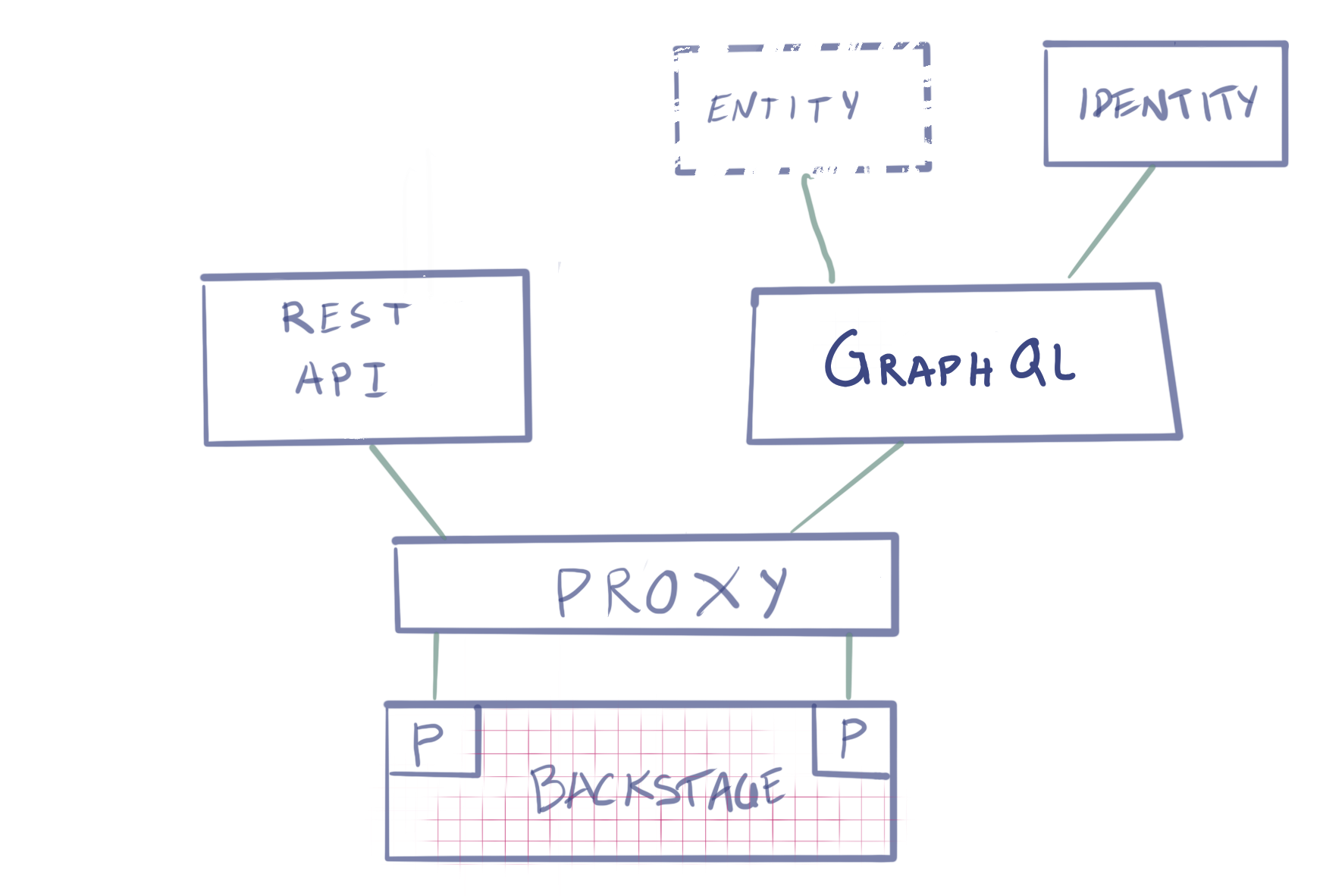Backstage is an open platform for building developer portals.
The philosophy behind Backstage is simple: Don't expose your engineers to the full complexity of your infrastructure tooling. Engineers should be shipping code — not figuring out a whole new toolset every time they want to implement the basics.
Backstage has been in production for over 4 years inside Spotify. But the Open Source version is still in an early stage. We are envisioning three phases of the project and we are committed to deliver on all of them:
-
Phase 1: Extensible frontend platform (now) - Backstage helps you get started building a single consistent UI layer for your internal infrastructure. Creating a Plugin is super simple.
-
Phase 2: Manage your software inventory (next 2-3 months) - A central software inventory with clear ownership and the ability to easily create and manage software at scale. Regardless if your developers want to create a new library, see their service's deployment status in Kubernetes or the test coverage for a website -- Backstage provides all of those tools - and many more - in a single developer portal.
-
Phase 3: Ecosystem (later) - Everyone's infrastructure stack is different. By fostering a vibrant community of contributors we hope to provide an ecosystem of Open Source plugins/integrations that allows you to pick the tools that match your stack.
The ultimate goal of Backstage is to become the trusted standard toolbox (read: UI layer) for the Open Source infrastructure landscape. We realize this is an ambitious goal. We can’t do it alone. If this sounds interesting or you'd like to help us shape our product vision, we'd love to talk. You can email me directly: [email protected].
The Backstage platform consists of a number of different components:
- frontend - Main web application that users interact with. It's built up by a number of different Plugins.
- plugins - Each plugin is treated as a self-contained web app and can include almost any type of content. Plugins all use a common set of platform API's and reusable UI components. Plugins can fetch data either from the backend or through any RESTful API exposed through the proxy.
- backend * - GraphQL aggregation service that holds the model of your software ecosystem, including organisational information and what team owns what software. The backend also has a Plugin model for extending its graph.
- proxy * - Terminates HTTPS and exposes any RESTful API to Plugins.
- identity * - A backend service that holds your organisation's metadata.
* not yet released
To run the frontend, you will need to have the following installed:
Open a terminal window and start the web app using the following commands from the project root:
$ yarn # may take a while
$ yarn startThe final yarn start command should open a local instance of Backstage in your browser, otherwise open one of the URLs printed in the terminal.
To create a new plugin, make sure you're run yarn to install dependencies, then run the following:
$ yarn create-pluginThis will prompt you to enter an ID for your plugin, and then create your plugin inside the plugins/ directory. The plugin will be automatically included in the app by modifing the app's package.json and src/plugins.ts.
If you have yarn start already running you should be able to see the default page for your new plugin at localhost:3000/my-plugin, if you called the plugin "my-plugin".
TODO: Add links to docs on backstage.io
Copyright 2020 Spotify AB.
Licensed under the Apache License, Version 2.0: http://www.apache.org/licenses/LICENSE-2.0


